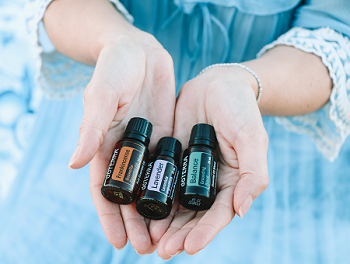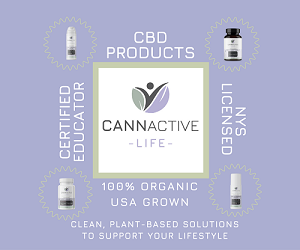Alternative Therapy
By Jillian Crocetta
We all value our self-care. I am a chronic over-planner, and I often find myself craving relaxation and rejuvenation. Many people choose to use aromatherapy to help reduce stress and anxiety due to harried lifestyles, to feel more energetic, or to reduce muscle and joint pain.
Aromatherapy is the practice of using the natural benefits of essential oils by either smelling or applying oils on skin. According to Mount Sinai, these oils, when smelled or applied, will communicate information to the brain that can positively affect both physical and mental health.
While aromatherapy has been used for centuries, it has recently risen in popularity, similar to other alternative or integrative therapies. Most essential oils are sold over the counter and are incredibly easy to access. In fact, there is an overwhelming number of products to choose from. But the accessibility of essential oils allows flexibility in choosing products for individual needs.
Lorraine Cucci, a registered nurse with over 40 years of experience in the healthcare industry and founder of Healing Path to Health, advises the use of essential oils that are therapeutic grade. Cucci holds many certifications, including Certified Usui Reiki Master Practitioner and ARCB Board Certified Reflexologist, and became interested in aromatherapy by using these oils for her own health. She uses Young Living essential oils, but there are other therapeutic grade oils to choose from.
The oils, says Cucci, can be applied or massaged directly to your pulse points, like your wrists, behind your ears, down the side of your face, or even the bottoms of your feet. Alternatively, essential oils can also be added to a diffuser, put in a bath or shower, or added to Epsom salts. For those on the go, there are also aromatherapy necklaces that oils can be applied to, according to John Hopkins, and portable aroma sticks, which have a wick that soaks up various oils and a cover for when you are not using it.
We all value our self-care. I am a chronic over-planner, and I often find myself craving relaxation and rejuvenation. Many people choose to use aromatherapy to help reduce stress and anxiety due to harried lifestyles, to feel more energetic, or to reduce muscle and joint pain.
Aromatherapy is the practice of using the natural benefits of essential oils by either smelling or applying oils on skin. According to Mount Sinai, these oils, when smelled or applied, will communicate information to the brain that can positively affect both physical and mental health.
While aromatherapy has been used for centuries, it has recently risen in popularity, similar to other alternative or integrative therapies. Most essential oils are sold over the counter and are incredibly easy to access. In fact, there is an overwhelming number of products to choose from. But the accessibility of essential oils allows flexibility in choosing products for individual needs.
Lorraine Cucci, a registered nurse with over 40 years of experience in the healthcare industry and founder of Healing Path to Health, advises the use of essential oils that are therapeutic grade. Cucci holds many certifications, including Certified Usui Reiki Master Practitioner and ARCB Board Certified Reflexologist, and became interested in aromatherapy by using these oils for her own health. She uses Young Living essential oils, but there are other therapeutic grade oils to choose from.
The oils, says Cucci, can be applied or massaged directly to your pulse points, like your wrists, behind your ears, down the side of your face, or even the bottoms of your feet. Alternatively, essential oils can also be added to a diffuser, put in a bath or shower, or added to Epsom salts. For those on the go, there are also aromatherapy necklaces that oils can be applied to, according to John Hopkins, and portable aroma sticks, which have a wick that soaks up various oils and a cover for when you are not using it.
|
The following list includes types of oils and some of the benefits.
Oils that Energize Cucci shares that she would carry some peppermint oil in her bag during a workday, just in case she started to feel a lapse in energy. Peppermint oil is a stimulant, intended to give someone a natural jolt if feeling run-down or tired. |
"Cucci shares that she would carry some peppermint oil in her bag during a workday, just in case she started to feel a lapse in energy. Peppermint oil is a stimulant, intended to give someone a natural jolt if feeling run-down or tired." |
Thieves oil, which is a blend of rosemary, eucalyptus, clove, cinnamon, and rosemary oils, is also used to give you energy. This essential oil blend is one of Cucci’s favorites.
And Johns Hopkins reports that lemon oil, with its bold and welcoming citrus scent, is known to also lift your mood.
And Johns Hopkins reports that lemon oil, with its bold and welcoming citrus scent, is known to also lift your mood.
Oils that Calm and Relax
Essential oils can be used to relax those with a stressful lifestyle. During an abnormally busy semester in college, I bought some essential oils, which still sit on my nightstand. I continue to use a touch of eucalyptus on my wrists or a few drops of lavender in my diffuser to help me after a long week of work.
These oils are sometimes given to people experiencing situational anxiety. According to Mount Sinai, rose oil, lavender or frankincense is sometimes given to women about to give birth to reduce feelings of anxiety, and one study showed that Neroli oil helped to reduced blood pressure and ease the nerves of patients about to undergo a colonoscopy.
Oils for a Good Night’s Sleep
The same oils that help you calm down and de-stress can also help you sleep. "Lavender is amazing," Cucci says. "It calms you and relaxes you. Applying lavender before going to bed at night can make all of the difference."
Oils that Stimulate Immune Health
Aside from the many mental and emotional health benefits, aromatherapy and essential oils can also help you improve your immune health. Perea Clinic asserts that lemon oil can be used to treat digestion and headaches. And Cucci says that it is also used as an antiseptic, vitamin, and even for cleaning surfaces.
Perea Clinic also lists tea tree oil as a popular essential oil used to improve your immune system and relieve infections. John Hopkins also states that tea tree oil is commonly used to treat acne. I have a very early memory of applying tea tree oil to my mosquito bites after a camping trip.
Thieves oil has been known to fight congestion, improve your immune system, and improve respiratory health.
Additional Health Benefits
According to Perea Clinic, wintergreen oil can provide relief to muscle and joint pain, and jasmine oil can help rejuvenate your libido (and your partner’s).
Cucci also says that some shampoos include rosemary oil, which is used to stimulate hair growth.
Final Thoughts
Aromatherapy is used for a wide variety of reasons, but Cucci reports those who lead stressful lives can really benefit. "And you can apply oils a couple of times a day," she shares. The benefits are relatively immediate. The quickest way to see a result is through smell, shortly followed by application to the skin.
Ultimately, it is important to do your research. Johns Hopkins recommends looking at the label of the oil, as it should include the plant’s Latin name and the country where the plant is grown. Therapeutic essential oils should also come in glass bottles to preserve their quality.
If you don’t know where to start, Cucci recommends looking for a starter kit.
Please note: This article is for informational and educational purposes only and does not substitute professional medical advice or consultations with a medical professional.
Essential oils can be used to relax those with a stressful lifestyle. During an abnormally busy semester in college, I bought some essential oils, which still sit on my nightstand. I continue to use a touch of eucalyptus on my wrists or a few drops of lavender in my diffuser to help me after a long week of work.
These oils are sometimes given to people experiencing situational anxiety. According to Mount Sinai, rose oil, lavender or frankincense is sometimes given to women about to give birth to reduce feelings of anxiety, and one study showed that Neroli oil helped to reduced blood pressure and ease the nerves of patients about to undergo a colonoscopy.
Oils for a Good Night’s Sleep
The same oils that help you calm down and de-stress can also help you sleep. "Lavender is amazing," Cucci says. "It calms you and relaxes you. Applying lavender before going to bed at night can make all of the difference."
Oils that Stimulate Immune Health
Aside from the many mental and emotional health benefits, aromatherapy and essential oils can also help you improve your immune health. Perea Clinic asserts that lemon oil can be used to treat digestion and headaches. And Cucci says that it is also used as an antiseptic, vitamin, and even for cleaning surfaces.
Perea Clinic also lists tea tree oil as a popular essential oil used to improve your immune system and relieve infections. John Hopkins also states that tea tree oil is commonly used to treat acne. I have a very early memory of applying tea tree oil to my mosquito bites after a camping trip.
Thieves oil has been known to fight congestion, improve your immune system, and improve respiratory health.
Additional Health Benefits
According to Perea Clinic, wintergreen oil can provide relief to muscle and joint pain, and jasmine oil can help rejuvenate your libido (and your partner’s).
Cucci also says that some shampoos include rosemary oil, which is used to stimulate hair growth.
Final Thoughts
Aromatherapy is used for a wide variety of reasons, but Cucci reports those who lead stressful lives can really benefit. "And you can apply oils a couple of times a day," she shares. The benefits are relatively immediate. The quickest way to see a result is through smell, shortly followed by application to the skin.
Ultimately, it is important to do your research. Johns Hopkins recommends looking at the label of the oil, as it should include the plant’s Latin name and the country where the plant is grown. Therapeutic essential oils should also come in glass bottles to preserve their quality.
If you don’t know where to start, Cucci recommends looking for a starter kit.
Please note: This article is for informational and educational purposes only and does not substitute professional medical advice or consultations with a medical professional.
|
ADDITIONAL RESOURCES:
Aromatherapy (Mount Sinai) Aromatherapy: Do Essential Oils Really Work? (Johns Hopkins Medicine) What are the Best Aromatherapy Massage Oils and Benefits? (Perea Clinic) Jillian Crocetta is a New York City-based human resources professional and freelance writer/editor who enjoys writing in the areas of identity, place, empowerment, and health & wellness. Jillian is pursuing an MFA in creative nonfiction at Queens College. In addition to the articles she has written for Sanctuary, her work has been published in Guesthouse and New Voices, among other publications.
|







